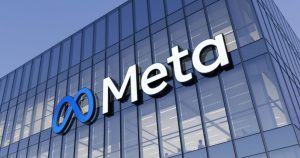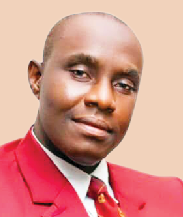By Alexander Chiejina
After it came out in December to disclose it was taking steps to protect the integrity of the forthcoming elections in Nigeria, technology and social media giant, Meta, has again shared additional efforts in its work to prepare for and help preserve the integrity of the general elections.
This work, Meta said, is expected to continue in the build-up to, during and after the vote. It added that it is grounded in long-running investments made in people, technology and partnerships to help reduce the spread of misinformation, detect and remove hate speech, improve digital literacy, help make political advertising more transparent and ensure the safety of people using its platforms.
Adaora Ikenze, head, public policy for Anglophone West Africa, explained that as the 2023 General Election Day approaches, Meta will activate a Nigeria-specific Elections Operations Centre that focuses on identifying potential threats across its apps and technologies in real time, thereby accelerating its response time.
“This initiative will bring together experts from across our company on our intelligence, data science, engineering, research, operations, public policy and legal teams. In combating misinformation and false news, we removed the most serious kinds of misinformation from Facebook and Instagram, such as content that could contribute to imminent violence or physical- harm, or that is intended to suppress voting,” Adaora stated.
She noted that for the Nigerian elections, based on guidance from local partners, false claims will be spotted out – photos and videos shared out of context that falsely depict ballot-stuffing, acts of violence or weapons.
Business A.M. observed that Meta has built specialised global teams to stop election interference, focusing on coordinated inauthentic behaviour (CIB) — when groups of people use sophisticated networks of Pages, Groups and accounts to try and manipulate public debate.
Since 2017, Meta removed more than 150 networks globally for coordinated inauthentic behaviour including ahead of major elections, and we remain vigilant to this behaviour.
“We are working closely with election authorities, including The Independent National Electoral Commission, and other local partners in Nigeria to ensure we’re preparing appropriately for the specific challenges an election brings,” said Ikenze.
She has also engaged with women safety organisations such as TechHer, ElectHer, Nigerian Women’s Trust Fund, and WIMBIZ to support a range of initiatives that encourage civic engagement.
Nigerians can have easy access to accurate information from credible sources with support of Yiaga Africa, a non-partisan voter education non-profit, through a donation to develop a voter education chatbot on WhatsApp.

Another feature, “I Voted” sticker, has been added on Instagram to remind Nigerians that it is time to vote with a notification on top of their Facebook Feed as well.
A cursory look at the Meta system reveals that harmful contents have been removed in order to keep people safe and ensure that people are able to talk openly on its apps about the issues that matter to them, whilst still feeling safe.
She continued: “Our Community Standards (also available in Hausa) publicly explain what content is and isn’t allowed on Facebook and Instagram, and cover a number of areas relevant to elections. These include policies on harassment and incitement to violence, as well as detailed hate speech policies that ban attacks on people based on characteristics like ethnicity or religion. When we become aware of content that violates these rules, we remove it.”
For content that does not violate these particular policies, Business A.M. observed that Meta works with independent fact-checking organisations in Nigeria — AFP, Africa Check, Dubawa and Reuters — who review and rate content in English, Hausa, Yoruba and Igbo.
When content is rated “false” or “partly false” by these fact checkers, warning labels are attached to the content and reduce its distribution in Facebook Feed so people are less likely to see it.
To help Nigerians spot and take action against false news online, Meta has partnered with local radio stations to create “#NoFalseNewsZone” radio dramas in English and Pidgin, and run ads on Facebook and radio in Yoruba, Pidgin, Hausa and Igbo.
Business A.M. gathered that WhatsApp will continue to limit peoples’ ability to forward messages and announced last year that any message that has been forwarded once can only be forwarded to one group at a time, rather than the previous limit of five.
When this feature was introduced in 2020, Meta reduced the number of messages sent on WhatsApp by more than 70 percent. WhatsApp’s Search the Web function also lets people double-check the text content of messages that have been forwarded many times.
People can also control who can add them to group chats and have options to block and report unknown contacts, giving them even more control over their privacy.
Advertisers seeking to run ads related to social issues, elections or politics on its apps in Nigeria must undergo a verification process to prove who they are and that they live in the country, said Meta, adding that their ads will also be labelled with a “Paid for by” disclaimer to show who is behind it.
New controls have been added so people can choose to see fewer ads about social issues, elections and politics. When people use these controls they’ll no longer see ads that are labelled with the “Paid for by” disclaimer.
“All political and electoral ads are added to our Ads Library for seven years, so that everyone can see what ads are running, see information about targeting and find out how much was spent on them,” Meta explained.











The power of narrative leadership: Shaping culture through storytelling